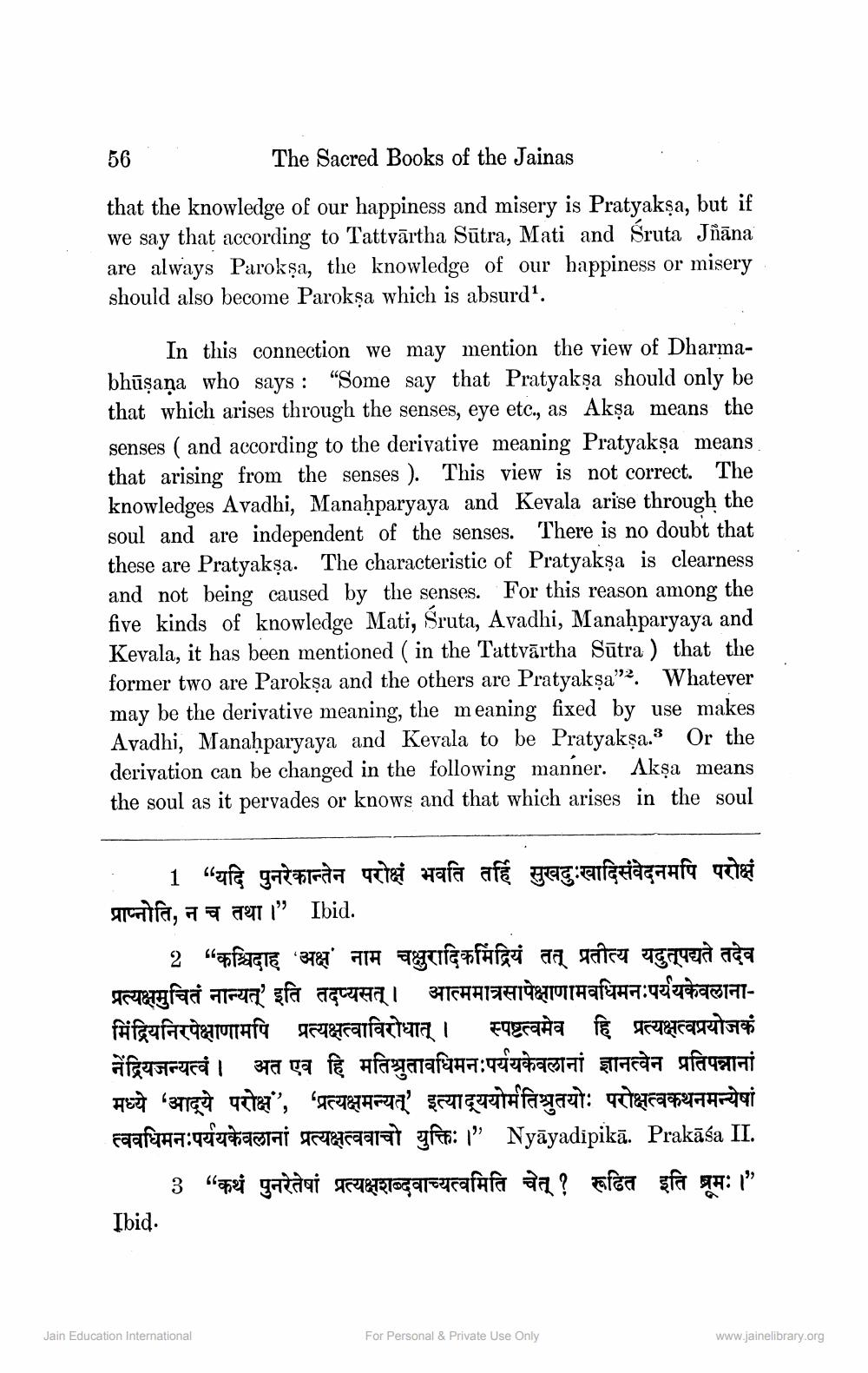________________
56
The Sacred Books of the Jainas that the knowledge of our happiness and misery is Pratyakşa, but if we say that according to Tattvārtha Sūtra, Mati and Sruta Jñāna are always Parokşa, the knowledge of our happiness or misery should also become Parokșa which is absurd'.
In this connection we may mention the view of Dharmabhūşaņa who says : “Some say that Pratyakşa should only be that which arises through the senses, eye etc., as Akşa means the senses ( and according to the derivative meaning Pratyakşa means that arising from the senses ). This view is not correct. The knowledges Avadhi, Manaḥparyaya and Kevala arise through the soul and are independent of the senses. There is no doubt that these are Pratyakşa. The characteristic of Pratyakşa is clearness and not being caused by the senses. For this reason among the five kinds of knowledge Mati, Sruta, Avadhi, Manahparyaya and Kevala, it has been mentioned ( in the Tattvārtha Sūtra ) that the former two are Parokșa and the others are Pratyakşa". Whatever may be the derivative meaning, the meaning fixed by use makes Avadhi, Manahparyaya and Kevala to be Pratyakşa.3 Or the derivation can be changed in the following manner. Akşa means the soul as it pervades or knows and that which arises in the soul
1 “यदि पुनरेकान्तेन परोक्षं भवति तर्हि सुखदुःखादिसंवेदनमपि परोक्षं प्राप्नोति, न च तथा।" Ibid.
2 “कश्चिदाह 'अक्ष नाम चक्षुरादिकमिंद्रियं तत् प्रतीत्य यदुत्पद्यते तदेव प्रत्यक्षमुचितं नान्यत्' इति तदप्यसत्। आत्ममात्रसापेक्षाणामवधिमनःपर्ययकेवलानामिंद्रियनिरपेक्षाणामपि प्रत्यक्षत्वाविरोधात् । स्पष्टत्वमेव हि प्रत्यक्षत्वप्रयोजक नेंद्रियजन्यत्वं । अत एव हि मतिश्रुतावधिमनःपर्ययकेवलानां ज्ञानत्वेन प्रतिपन्नानां मध्ये 'आद्ये परोक्ष', 'प्रत्यक्षमन्यत्' इत्याययोर्मतिश्रुतयोः परोक्षत्वकथनमन्येषां त्ववधिमनःपर्ययकेवलानां प्रत्यक्षत्ववाचो युक्तिः ।” Nyayadipika. Prakasa II.
3 “कथं पुनरेतेषां प्रत्यक्षशब्दवाच्यत्वमिति चेत् ? रूढित इति ब्रूमः ।"
Ibid.
Jain Education International
For Personal & Private Use Only
www.jainelibrary.org




